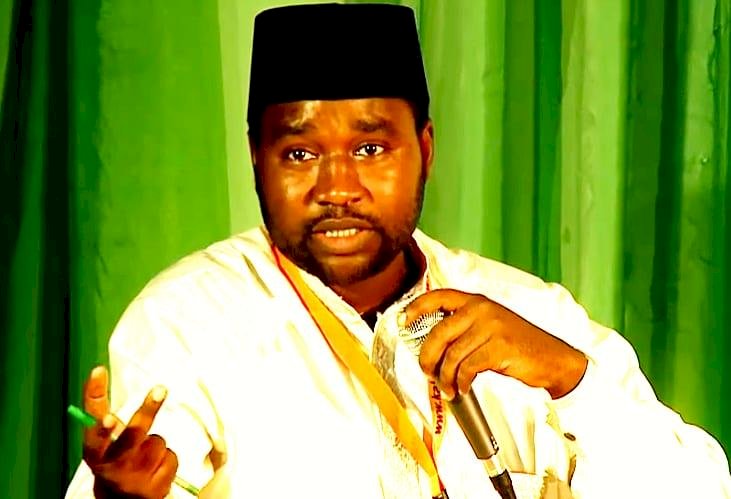Nigerian Atheist Sentenced To 24 Years In Blasphemy Case

Nigerian atheist activist Mubarak Bala, detained in April 2020, was sentenced Tuesday to 24 years after pleading guilty to 18 charges in a blasphemy case that had been widely condemned by UN experts and international rights groups.The 37-year-old was accused of writing on social media posts
criticising Islam and its prophet, which the court said were capable of breaching public peace in the conservative Muslim north where sharia law is enforced alongside common law. "The court hereby sentences Muhammad Mubarak Bala to 24 years... This will take into consideration the time he served
awaiting trial, Kano-based judge Faruk Lawan said. His lawyer James Ibor objected to the guilty plea and asked the judge if he could talk to his client, a request that was accepted. "I wanted to be sure he was under no influence or intimidation," Ibor said, and that his client understood "the implication of
his plea. When the court resumed, the defence counsel said its client wanted to change the plea which it believed was the result of frustration after two years in custody.But Bala rejected his own lawyer's statement, and again pleaded guilty.UN rights experts and other groups had already
condemned his detention and demanded his release, saying the case risked tainting fundamental human rights in Africa's most populous country.
Power and influence
As president of the Humanist Association of Nigeria, Bala was an advocate for freedom of religion and against Islamic extremists in the country.From a religious family and environment himself, people close to him say he fully knew the risks he was taking, opposing northern clerics who
yield significant power and influence.In 2014, Bala was forcibly admitted by his own family to a psychiatric ward for 18 days because he said he did not believe in God. Despite that experience, Bala redoubled his activism in the years that followed, using social media to share his views.Looking in
good health as he appeared in court in a white short-sleeve shirt, he said he was "pleading for mercy and leniency." "The intention of the posts was not to cause violence but I have realised they are capable of causing violence. I will take care in the future, he said. The judge asked the defendant if he
was pressured to plead guilty or promised anything if he did so, to which Bala said no. Faruk Lawan also asked him if he knew the implication of his plea. Punishment, replied the defendant.
Immense pressure
Founder of the Humanist Association of Nigeria, Leo Igwe, said the ruling undermined "the rights of people who are not religious to express their mind freely." "Today is a very sad day for humanism, human rights and freedom because Nigeria through the court ruling has decided to identify with tyranny,
Igwe said. According to the rights activist, Bala was under immense pressure... to plead guilty as the only way for him to gain freedom from family members and members of the Islamic establishment. The judge said Bala was free to believe in his ideology but that it does not give him
the right to insult other religious beliefs in a way capable of breaching public peace. The court hopes this (ruling) will serve as deterrent, said Lawan.As a first time offender and considering the guilty plea, Ibor tried to argue for a lesser sentence, but wasn't successful. The plea cannot be changed but Bala could decide to appeal the length of the sentence. What is possible to challenge at appeal is the sentence, said Ibor. The length of time is outrageous.
